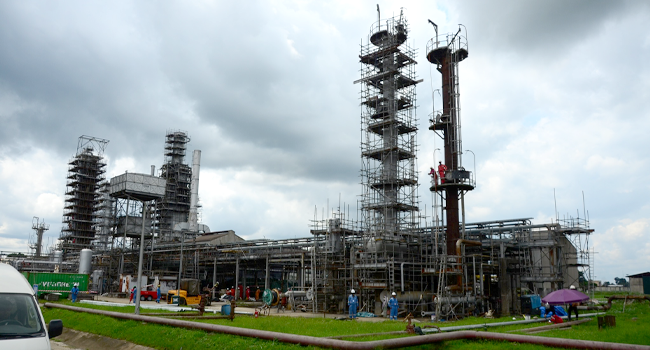Independent Petroleum Marketers Association of Nigeria (IPMAN) has expressed optimism that its members will soon be able to load petrol from the Port Harcourt refinery.
This follows reports that the NNPC Limited-owned refinery, which began operations last week, is refining at 70 percent of its capacity.
IPMAN’s Public Relations Officer, Chief Chinedu Ukadike, revealed that the refinery is currently supplying products mainly to NNPC retail stations and a few select marketers.
Ukadike said, however, that independent marketers should be able to access products directly from the refinery in the coming days, as the refinery ramps up its operations.
“We are hopeful that by this week, our members will be able to load products from the Port Harcourt refinery,” Ukadike stated. “Currently, it supplies only NNPC retail and a few selected marketers, but this is expected to change soon as operations at the refinery increase.”
The Port Harcourt refinery has a capacity to refine 60,000 barrels of crude oil per day, and NNPC has been working to increase its output to meet growing demand.
Ukadike also noted that some independent marketers are now lifting products directly from the Dangote refinery, following a new arrangement with the refinery’s management.
“Dangote Refinery has recently reduced the minimum quantity for bulk purchases to two million litres, which has made it easier for our members to buy fuel,” Ukadike explained. “This has been a game-changer for many independent marketers.”
According to Ukadike, this shift has made the market more competitive, with independent marketers now able to compete more effectively against larger players.
“The beauty of deregulation is that it has created more opportunities for us to access petrol and sell at competitive prices,” Ukadike added.
While there have been no major fuel shortages or long queues at petrol stations, Ukadike noted that slight price differences between marketers are visible.
This is due to the deregulation of the petroleum sector, which allows marketers to set prices based on their cost of acquisition.
“There is a bit of price variation, but that’s to be expected in a deregulated market,” Ukadike explained. “However, distribution has been smooth and there are no major queues.”
The expected increase in product supply from the Port Harcourt refinery will also help reduce the pressure on Dangote products, Ukadike said.
“With more refineries coming online, including the Port Harcourt refinery, we expect less pressure on Dangote’s products,” he added.
This development is seen as a major step in improving fuel availability and distribution in Nigeria, which has faced significant challenges in recent years.
Independent marketers have often struggled with access to fuel due to high minimum purchase requirements and limited supply from major refineries.
The new supply arrangements, however, are expected to make the market more flexible and responsive to consumer demand.
Ukadike confirmed that while most independent marketers have not yet started accessing products from the Port Harcourt refinery, the situation is expected to change soon.
“By this week, we believe our members will be able to load petrol directly from the Port Harcourt refinery,” he said.
He expressed confidence that the supply from Port Harcourt will further stabilize the fuel market, especially in southern Nigeria.
In addition to Port Harcourt and Dangote refineries, marketers are also exploring other avenues for supply, including imports and smaller local refineries, in a bid to meet the growing demand.
The hope is that with increased local production, Nigeria can reduce its dependency on imported petroleum products and improve the overall efficiency of its fuel distribution network.
As the situation develops, all eyes will be on the Port Harcourt refinery to see how soon it can ramp up its output and whether it will be able to meet the needs of both independent and major marketers in the coming weeks.
For now, independent marketers remain hopeful that the continued operation of local refineries will ease the pressure on the market and lead to more competitive fuel prices for Nigerian consumers.

